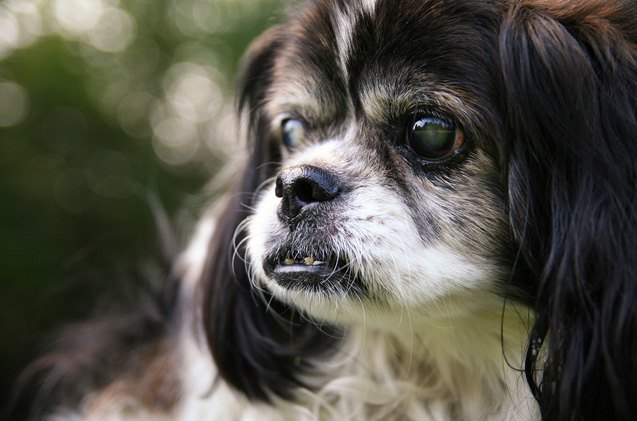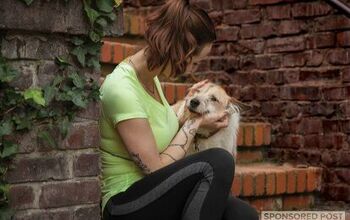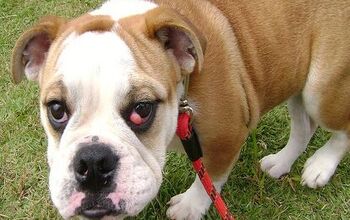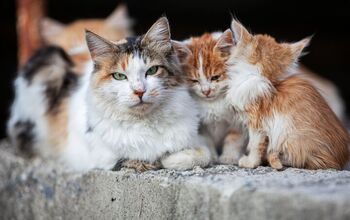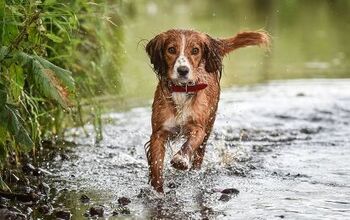Living Well With Your Blind Dog

For many dogs, loss of vision is a consequence of aging but it doesn’t have to be a major problem. In fact, dogs often learn to cope with vision loss and even total blindness without much difficulty at all. Here are some of the major causes of blindness in dogs as well as some tips for helping a blind dog.
Causes of Vision Loss in Dogs
Blindness and vision loss is often simply a consequence of aging in dogs, but it can also be the result of several common eye conditions. Progressive retinal atrophy, for example, is an inherited condition that causes increase vision loss over time. This condition is not painful for the dog but it typically affects both eyes and often leads to total loss of vision. Glaucoma, on the other hand, is a painful condition in which fluid pressure inside the eye increases which causes damage to the optic nerves and retina. This condition can result in either partial or total blindness, though both medical and surgical treatments are available for glaucoma.
Related: Muffin’s Halo Is A Fashionable Guide For Blind Dogs
Another common eye condition in dogs is cataracts – this condition can be inherited, though it may also result from injury or infection of the eye. This condition involves the clouding of the lens, which prevents light from reaching the retina of the eye. It can result in either partial or total blindness and it can occur suddenly. Diabetes is another condition in dogs which often affects eyesight. This condition affects an estimated 1 in 10 dogs and it is particularly common in female and senior dogs. Diabetes often causes cataracts in dogs within one year of diagnosis.
Related: Dog Essentials From Global Pet Expo
Signs of Vision Loss in Dogs
If your dog is losing his vision gradually over a long period of time, you may not notice the signs immediately. Some common signs of vision loss in dogs include:
- Bumping into walls or furniture
- Confusion in unfamiliar surroundings
- Difficulty finding food and water bowls
- Rubbing the eyes or squinting
- Startling easily
- Clouding or discoloration of the eye
- Dilated pupils or excessive tearing
- Reluctance to move from one spot
Tips for Dealing with Blindness
As we’ve been mentioned, many dogs are able to adapt to vision loss quite well but there are definitely a few things you can do to make their lives easier. Below you will find a list of tips to help your dog cope with his vision loss:
- Avoid rearranging furniture – even slight changes can be problematic
- Don’t leave toys or objects lying on the floor where your dog could trip on them
- Cover sharp objects and corners with insulation in case your dog walks into them
- Speak to your dog when entering a room to avoid startling him
- Block access to stairs so your dog doesn’t accidentally fall down them
- Use different rugs in different rooms so your dog can use the texture to get his bearings
- Carry your dog up and down stairs to avoid injury
- Make sure visitors let your dog smell their hands before touching/petting him
- Always keep your dog’s food and water bowls in the same place
- Scent the top and bottom of staircases with perfume to help your dog recognize them
- Be very vocal in general so your dog can tell where you are in the room
- Research products on the market made for blind dogs
Dogs are generally able to adapt to vision loss much easier than humans because they have a stronger sense of smell that helps them compensate. By following these tips, you can help your dog to adjust to a loss of vision, or even total blindness.

Kate Barrington is the loving owner of two cats (Bagel and Munchkin) and a noisy herd of guinea pigs. Having grown up with golden retrievers, Kate has a great deal of experience with dogs but labels herself a lover of all pets. Having received a Bachelor's degree in English, Kate has combined her love for pets and her passion for writing to create her own freelance writing business, specializing in the pet niche.
More by Kate Barrington



